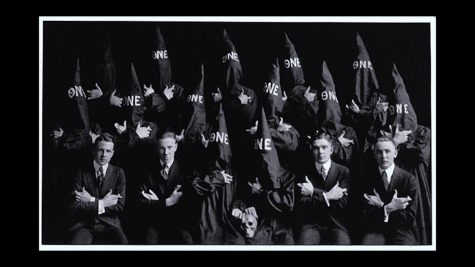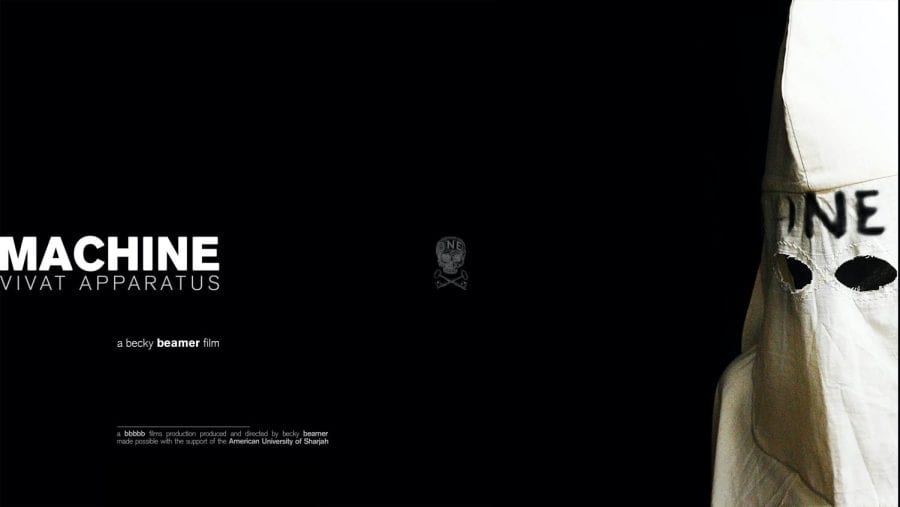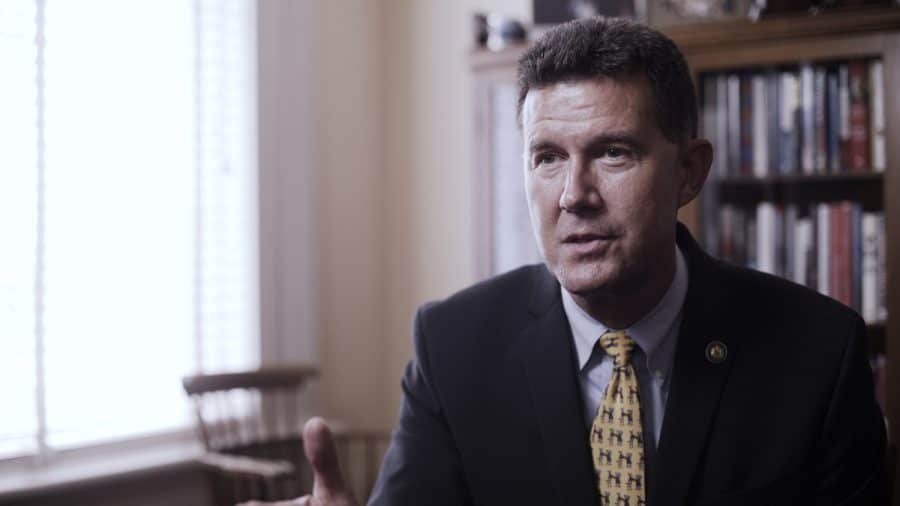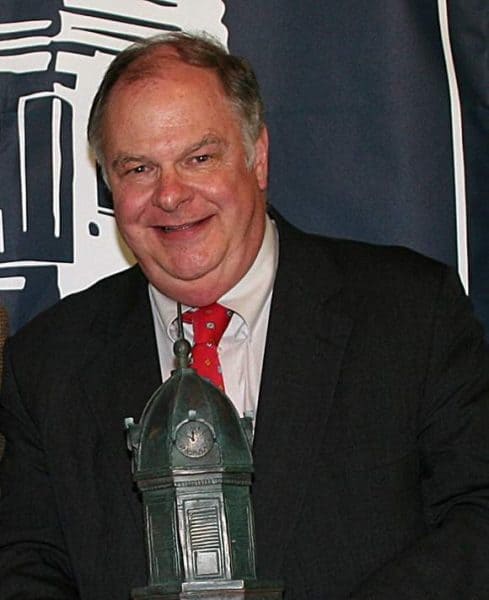‘Long live the Machine’: Documentary on infamous UA group premieres at Birmingham film festival
August 28, 2022
Fran Viselli’s business was a casualty of politics.
Not national, or even state politics. According to a new documentary, “Machine: Vivat Apparatus,” Bama Bino’s Pizzeria was a casualty of the war for the 1989 Student Government Association presidency. Directed by Becky Beamer, the documentary had its world premiere at Birmingham’s 24th annual Sidewalk Film Festival on Saturday, Aug. 27.
Beamer, who has worked on documentary projects for National Geographic, Smithsonian, Discovery and PBS, obtained her MFA at the University in 2016 and her BFA from the Pratt Institute in 2002. She works as an assistant professor in the photojournalism department at Oslo Metropolitan University in Norway.
The documentary, which Beamer said has been in the works for seven years, premiered in front of a small audience, but was enthusiastically received. When the audience was asked before the film to raise their hand if they had heard of the Machine, almost everyone put up a hand.
Beamer’s fascination with the Machine began with pizza. Formerly a partial owner of Broadway Pizza South, Beamer was introduced by a mutual friend to Viselli, and after hearing about the demise of Bama Bino’s, Beamer couldn’t stop digging.
“It’s a fascinating story, I think almost anyone who finds out about [the Machine] is interested in it. So that’s first off. And then when I met Fran Viselli, I just thought his story was so powerful. And that was one little piece of it. And so, it started out, I was going to do a short, and then I start digging, then it turns into a feature,” Beamer said.
The film’s budget was small, and Beamer faced roadblocks trying to reveal the stories of the secretive society. The University denied Beamer’s formal request to film the outsides of buildings and areas on campus, so she relied heavily on archival film. During a Q&A after the screening, Beamer said she also relied on years of coverage written by The Crimson White, some of the only documentation of Machine activities.
“The collection of the CW at the University research Hoole library, I mean, it’s an amazing resource. So, I had that. And then I had all public domain materials,” Beamer said.
Beamer said she compensated for her small budget by forgoing the reenactments currently popular in many documentary films and instead using archival black-and-white footage of machinery, children, clowns and other “kitschy” subjects to contrast with the talking heads in the film. “Constant and pervasive machine sounds” were used to show the Machine as both character and concept within the film, according to an artistic note about the film.

“I like it because it brings a new kind of energy to a piece that, you know, it is investigative,” Beamer said about her choice to use archival black-and-white footage. “It is also like a mystery and kind of like, you want it to be a little lighthearted at times, because otherwise it just feels too down. So, I was trying to pull up the energy and also give some bit poetic visuals to the piece.”
The documentary covered the events and aftermath of the 1989 SGA presidential contest between independent candidate Joey Viselli, son of Fran Viselli, the owner of Bama Bino’s, and Lynn Yeldell, the candidate allegedly backed by the Machine; Cleophus Thomas’ path to the SGA presidency; the 2013 Tuscaloosa School Board election between Kelly Horowitz and Cason Kirby, which ended in controversy over “drinks for votes” and eventually made its way before the Alabama Supreme Court; and Jared Hunter’s presidential campaign, administration and resignation.
Many of those interviewed were current and former power-players in state politics, including Alabama Secretary of State John Merrill and former Governor of Alabama and convicted felon Don Siegelman. Others interviewed were Fran Viselli; Kirby, a Machine SGA President who was backed by the Machine in the 2013 Tuscaloosa School Board election; Horowitz, who ran against Kirby in that election and later took Kirby to court over alleged voter fraud; Thomas, former member of the Board of Trustees and the first independent and first Black SGA president; and Katie Smith, who was a Machine-affiliated sorority member and the “whistleblower” that triggered the court case between Horowitz and Kirby.
Others interviewed included John Archibald, a Pulitzer prize-winning columnist and former reporter for The Crimson White who says he has made it his mission to expose the Machine, and Jared Hunter, the first Black Machine-backed candidate for SGA president who won the presidency in 2017 and resigned halfway through his term after numerous scandals, culminating with Hunter being arrested for DUI. Hunter is the only Machine-backed candidate to date that openly acknowledged his Machine ties and backing.
Beamer said that while she does not have any current plans to take her work on the Machine further, she would be open to the idea if presented with the opportunity.
“So, I don’t have any plans to necessarily take it further, but, if I was asked to … I would be happy to do more on the topic, because it’s fascinating, but no immediate plans. My goal now is just to get it out there and have people screen it and enjoy it,” Beamer said. She hopes the film gives back to the people and community who helped her make it.
Beamer said she plans to make the documentary accessible soon to as many people as possible, but her ideal home for the film would be Alabama Public Television.
The trailer for “Machine: Vivat Apparatus” can be watched online.
The University did not respond to a request for comment on the film or its focus at the time of publication.












